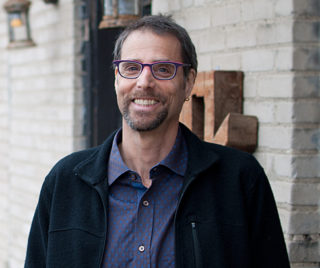
Harold Glasser
Author
Harold Glasser, (Ph.D., University of California, Davis), works at the nexus where environmental science, public policy, philosophy, values, business, design, economics, history, systems modelinglearning, and education meet. He holds degrees in physics, energy systems design (mechanical engineering), and environmental engineering. He has been a Mesa Refuge Writers Retreat Fellow (2004), a visiting Senior Fulbright scholar at the Center for Development and Environment and Department of Philosophy, University of Oslo (1996), a lecturer at Schumacher College, UK (1995), and a visiting researcher at the International Institute for Applied Systems Analysis, Vienna (1992). He has lectured widely in Taiwan, Japan, Norway, the U.K., and throughout the U.S. His research focuses on the evaluation of complex environmental problems and the processes used to make individual and collective choices for using and protecting the environment (past, present, and future). A primary interest is developing methods for transparently evaluating and illuminating the tradeoffs among alternative policies, projects, and product designs under conditions where limited information, risk, conflict, lack of scientific consensus, and multiple and incommensurable evaluation criteria predominate. Glasser’s approach to improving decision-making processes emphasizes integrating quantitative considerations with qualitative, value-based considerations. He employs a variety of strategies to use multicriteria data to highlight and visualize the trade-offs amongst alternative choices. He uses this framework to assist schools, communities, organizations, and businesses in their efforts to promote ecological and cultural (ecocultural) sustainability by enhancing engagement and by doing more with less. Most recently, Glasser has begun to apply his analytical and philosophical approach to better understand the basis of the disconnect between peoples’ stated values and concerns and their everyday actions and lifestyles and to explore strategies for bridging this gap. In this vein, he has just inaugurated a long-term project to evaluate (and reimagine, if necessary) everyday products that are viewed as extremely desirable by consumers from the perspectives of energy, materials, and economic life cycle costs, ecological ‘soundness,’ and consumer satisfaction (‘efficacy’). In January of 2005, he completed a 12kW researcheducation PV array that is being used to assess the life-cycle costs of three types of PV panels, which represent the three leading PV technologies (single crystal, polycrystalline, and amorphous). Glasser also leads an innovative, inquiry and project-based learning initiative to develop energy education for sustainable development curriculum for K-12 students in Michigan (both projects are externally funded). In addition, he worked with the Foundation for Deep Ecology, where, as Series Editor of the Selected Works of Arne Naess, he oversaw and had the bulk of the responsibility for revising and editing a ten-volume collection of Naess’s works, which was issued in late 2005 (Springer). Glasser is Director of the Campus Sustainability Assessment Project (www.csap.envs.wmich.edu); a Senior Fellow at the University Leaders for a Sustainable Future (D.C.); former Chair of the Performance Measurement Working Group of the EPA’s Colleges and Universities Sector Assessment Project; a past member of the EPA’s STAR Fellowship Selection Committee; a member of the Economicology Group; on the editorial boards of the International Journal of Sustainability in Higher Education and the Trumpeter Journal of Ecosophy; on the steering committees of the: Global Higher Education for Sustainability Partnership’s Resource Project for the UN Decade for Education for Sustainable Development (2005-2015), Environmental Education Coalition, and the Ad-hoc Steering Committee for the Campaign for an Environmentally Literate America; on the advisory boards of the: Association of the Advancement of Sustainability in Higher Education; Center for Development of Social Finance (San Mateo, CA); and Michigan Interfaith Power and Light; Chair of Western Michigan University’s SustainabilityEnvironmental Impact Committee, and a founding member of the WMU Campus Sustainable Design Committee. Some of his clients have included: United Nations University Institute of Advanced Studies (for the UN Decade of Education for Sustainable Development 2005-2014), Southern California Edison, University Leaders for a Sustainable Future (Washington, D.C.), City of Martinez (CA), City of Grand Rapids, MI (UNU Regional Center of Expertise in Education for Sustainable Development), Kalamazoo Public Schools (Energy Education for Sustainability Curriculum), Michigan Energy Centers Network, Small Business Association of Michigan, West Michigan Sustainable Business Forum (Sustainable Product DesignLife-Cycle Thinking), Kalamazoo Outdoor Gourmet, Western Michigan University’s College of Health and Human Services (Green Building), Warren Wilson College (Integrating Sustainability Across the Triad), and the Wege Foundation (Grand Rapids, MI). Glasser has written on education for ecocultural sustainability, social learning, environmental policy, ecological economics, planning, multicriteria analysis, green accounting, deep ecology, campus sustainability assessment, and environmental values.
Showing 1 of 1 result
Minding the Gap: Social Learning for Turning Ideals into Actions
Humans have been both fascinated and tortured by questions regarding our fate and future for at least as long as we have possessed the…
